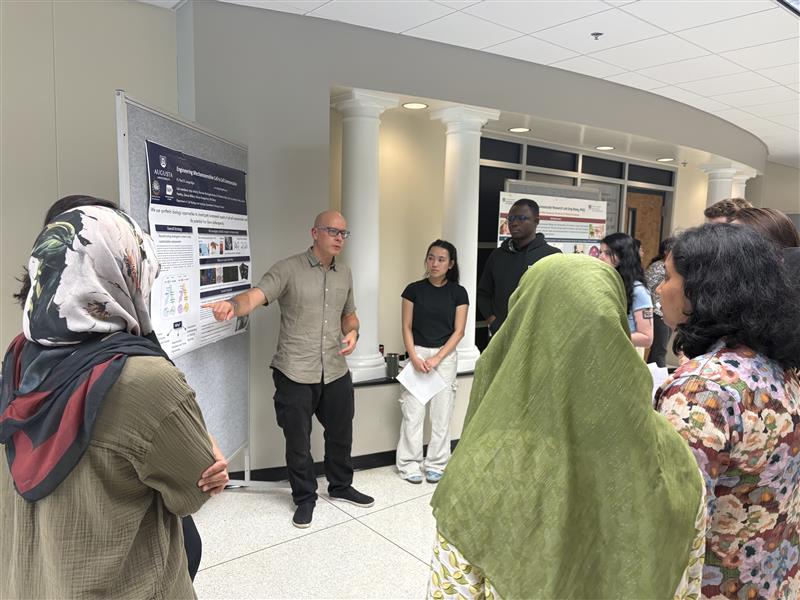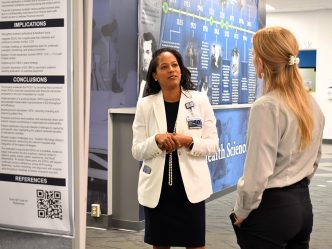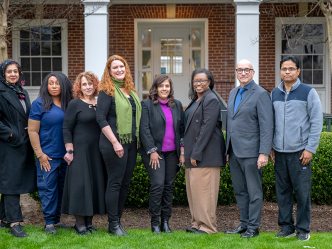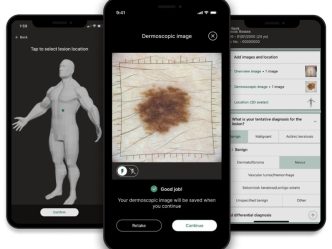Paul Langridge, PhD, who was recently promoted to associate professor in the Department of Biological Sciences in Augusta University’s College of Science and Mathematics, was awarded a National Science Foundation CAREER Award. The CAREER Award is the NSF’s most prestigious award for early-career faculty who have the potential to be academic role models in research and education, as well as for those who contribute to their institutions’ stated mission.
“Dr. Langridge’s NSF CAREER award recognizes early career scientists who have the potential to lead advances in their field and are doing exceptional work in research and education,” said Brad Olson, PhD, chair of the Department of Biological Sciences.
Langridge’s research focuses on how disintegrin and metalloproteinase proteases interact with surface proteins, allowing cells to send and receive signals from their immediate neighbors. When this communication system breaks down, it can lead to developmental disorders, neurological diseases and cancer.
“Cell communication is essential for virtually every aspect of life,” Langridge said. “From guiding developing neurons to their proper destinations to regulating cell division in cancer, these signaling pathways control some of the most important biological processes.”
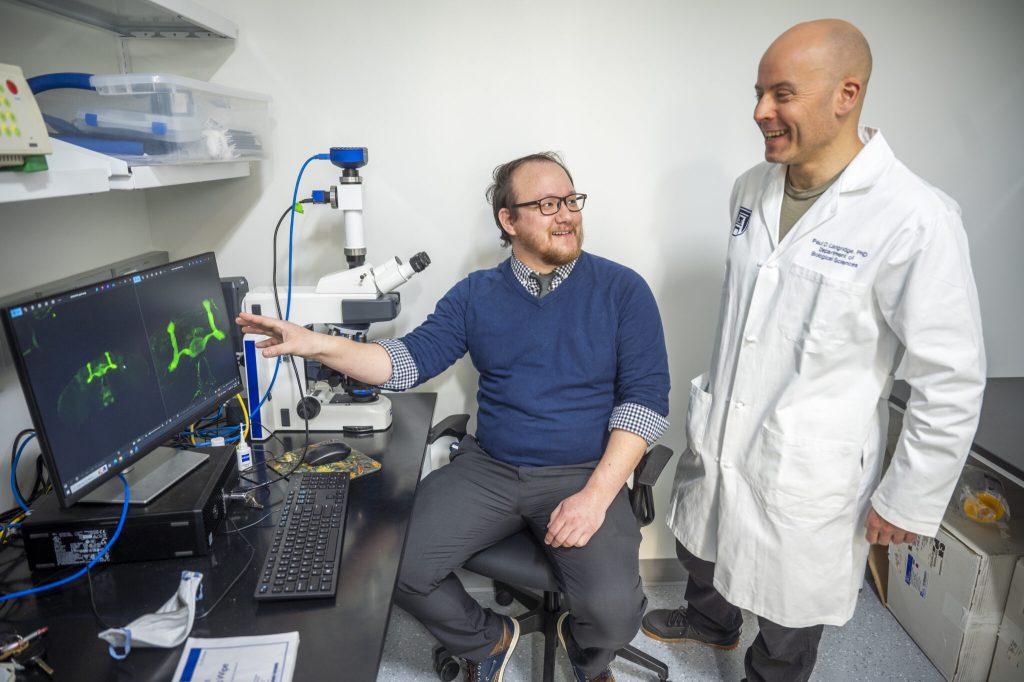
Langridge is able to manipulate the proteins and signaling pathways to see how they directly affect a biological system through his use of the drosophila, or fruit fly model. Langridge credited the fruit fly model as an unlikely but significant model for understanding cell communication.
“What we discover in fruit flies often translates directly to human biology,” Langridge said. “Fruit flies offer us a powerful system to study these complex processes in an animal, allowing us to understand the basic principles that govern cell communication. In fact, most of what we know about the mechanisms governing the pathways we are interested in comes from research in flies.”
The fruit fly model’s cost-effectiveness, rapid growth, well-characterized genetics and ease of use, coupled with the cutting-edge tools that let researchers manipulate specific genes, is not just helpful for faculty researchers as a model but for students, too.
Langridge’s NSF award has opened the door for him to develop new advanced courses in cell signaling research for students.
“Not only is this cutting-edge research, but Dr. Langridge will be integrating undergraduate students into this research with collaboration with the Augusta University Center for Undergraduate Research and Scholarship, providing an exceptional opportunity for AU students,” Olson said.
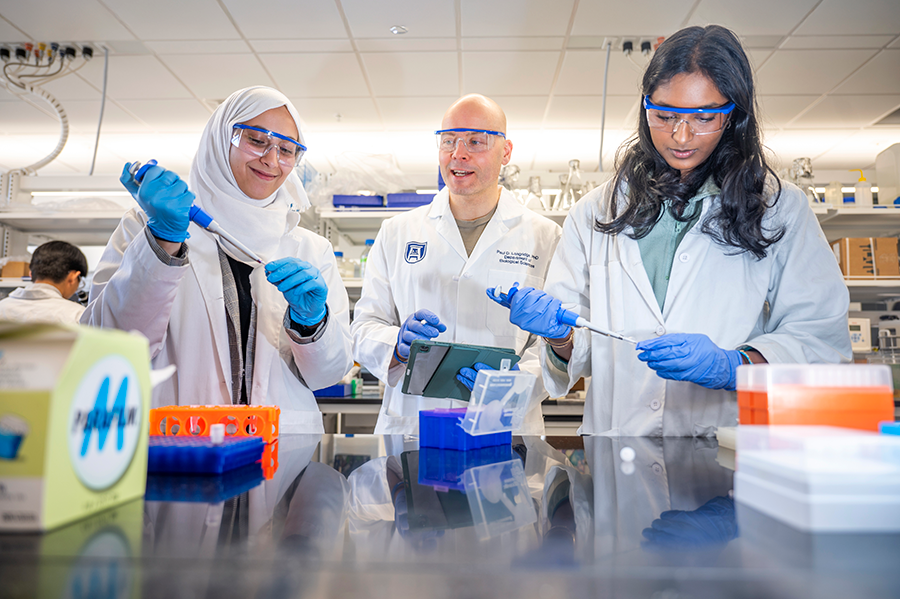
“CURS will allow students to move beyond textbook learning and actually engineer biological systems,” said Langridge. “They’ll use the principles of cell communication to build new signaling pathways, giving them hands-on experience with the same concepts that drive the lab’s research.”
The CAREER education goals also extend beyond AU. Langridge’s lab will be partnering with the Phinizy Center for Water Sciences to put on educational events to convey the importance of fruit fly research to the general public. The educational components of the NSF award will allow students to participate in authentic research that strengthens their lab skills and allows the local community to have an accessible and fun way to engage with otherwise technical research.
 Augusta University
Augusta University
